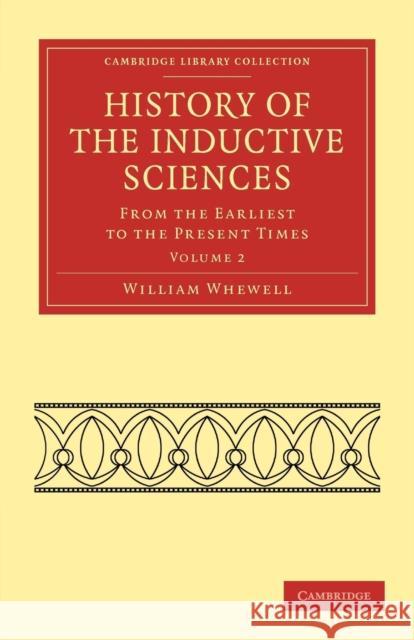History of the Inductive Sciences: From the Earliest to the Present Times » książka
History of the Inductive Sciences: From the Earliest to the Present Times
ISBN-13: 9781108019255 / Angielski / Miękka / 2010 / 552 str.
History of the Inductive Sciences: From the Earliest to the Present Times
ISBN-13: 9781108019255 / Angielski / Miękka / 2010 / 552 str.
(netto: 317,76 VAT: 5%)
Najniższa cena z 30 dni: 211,52
ok. 16-18 dni roboczych
Dostawa w 2026 r.
Darmowa dostawa!
A central figure in Victorian science, William Whewell (1794 1866) held professorships in Mineralogy and Moral Philosophy at Trinity College, Cambridge, before becoming Master of the college in 1841. His mathematical textbooks, such as A Treatise on Dynamics (1823), were instrumental in bringing French analytical methods into British science. This three-volume history, first published in 1837, is one of Whewell's most famous works. Taking the 'acute, but fruitless, essays of Greek philosophy' as a starting point, it provides a history of the physical sciences that culminates with the mechanics, astronomy, and chemistry of 'modern times'. Volume 2 focuses on the rise and development of modern mechanics in the seventeenth century. Whewell shows how Galileo's laws of motion exemplify a paradigmatic shift from 'formal' to 'physical' sciences - a new approach concerned with explaining causes rather than merely observing phenomena. It also discusses the implications for physical astronomy of Newton's discoveries."











